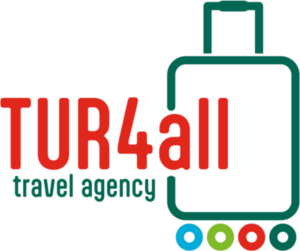Rural tourism has grown exponentially in the last few years, because many people look to disconnect from the cities and connect with nature. For travelers with disabilities, rural tourism accessible is becoming a reality thanks to the efforts of many destinations to adapt their facilities and routes. To be able to enjoy a natural environment without barriers is now possible, and there are more and more options for those wishing to experience the tranquility of nature with all the comforts of accessibility.
1. The importance of rural tourism accessible
The rural tourism accessible is key to ensuring that all people, regardless of their physical ability, can enjoy outdoor activities. It is not only about providing access to the accommodation, but also create a complete experience that allows travelers with reduced mobility or disabilities to enjoy trails, activities and landscapes that before they could become inaccessible. This encourages the inclusion and ensures that tourism is an activity for everyone.
As more rural destinations are in addition to this initiative, travelers have the opportunity to explore unique landscapes, breath fresh air and enjoy outdoor activities without facing physical barriers.
2. Accommodations accessible rural
One of the first aspects to consider when planning a trip to rural accessible is the accommodation. Fortunately, each time more rural accommodation is adapted to receive people with disabilities. Many rural houses, boutique hotels, inns and campgrounds offer accessible rooms, with bathrooms, wide doors and ramps. In addition, some establishments include other features, such as signage touch for people with a visual impairment or visual alarms for hearing impaired people.
For example, in rural destinations as the Alpujarras in Spain or the Cotswolds in the Uk, you can find accommodations that combine the rural charm with the accessibility. These spaces are designed to offer comfort without sacrificing access to nature, allowing to persons with reduced mobility to enjoy a carefree stay.
3. Hiking trails accessible
Hiking is one of the most popular activities in the rural tourism, and increasingly parks and natural reserves are changing their routes to be accessible to people in wheelchairs or with reduced mobility. These footpaths are usually paved, or have smooth surfaces that allow easy scrolling, in addition to be equipped with handrails, ramps and rest areas adapted.
Some examples of accessible routes include the Monfragüe National Park in Spain, which offers trails accessible viewpoints are adapted for people with reduced mobility, or the Natural Park of Delta del Ebro, which also has wooden walkways accessible that allow you to enjoy the flora and fauna of the place.
In many cases, these routes are also suitable for people with visual disabilities, with signs in braille or guides touch that help you to enjoy the natural environment in an inclusive way.
4. Activities accessible rural
In addition to hiking, there are many other rural activities that have been adapted to be accessible. The therapeutical riding is a popular activity in many rural destinations, where they are used horses trained to offer an inclusive experience, and safe for people with disabilities. These activities are not only recreational, but also therapeutic, and allow participants to connect with nature in a unique way.
Other featured activity is the cycling facilities, which is offered in many rural destinations. Special bicycles allow people with different types of disabilities are able to enjoy walks, cycle routes are accessible, encouraging the exercise and enjoyment of the natural environment.
Finally, some rural destinations have also developed water activities accessible, like boat rides, adapted or kayak in lakes with easy access, allowing everyone to enjoy the water without barriers.
5. The future of rural tourism accessible
As that increases the demand of experiences accessible, it is likely that we will see a greater number of initiatives and projects to ensure that more rural destinations are tailored to the needs of all travelers. Accessibility not only benefits people with disabilities, but also to families with small children or elderly people, creating a more inclusive experience for all.
Investing in accessibility is a commitment to the inclusion and well-being of all visitors. In addition, the destinations that are striving to be more accessible to have the opportunity to attract a wider audience, increasing its competitiveness in the tourism sector.



